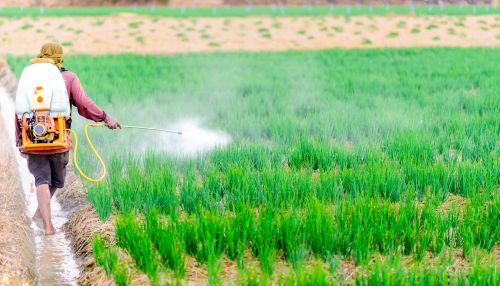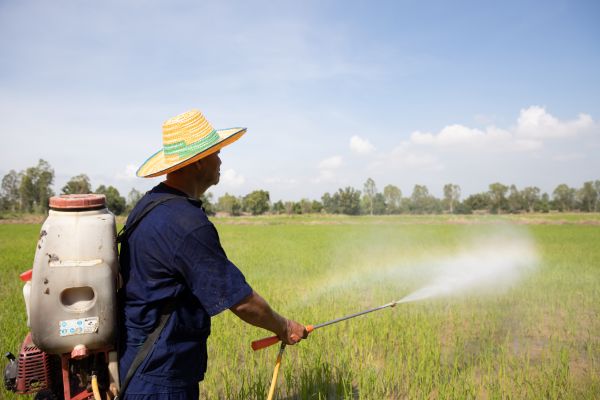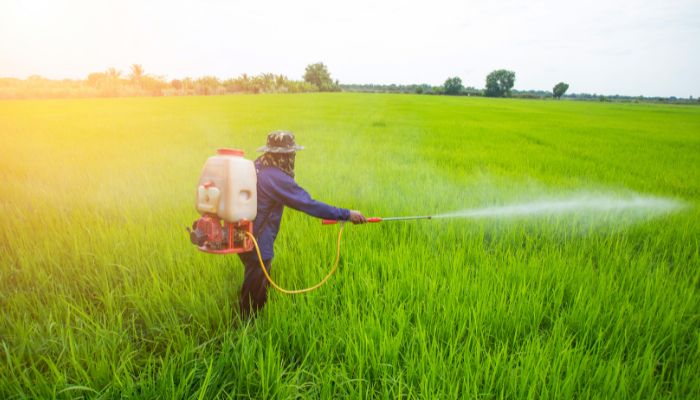Farming spray pumps are an essential tool for delivering pesticides, fertilizers, and weed killers homogeneously throughout the farmlands. Making the right decision in spray pump selection will amplify farm output while keeping crops from bugs and disease. In the following guide, we shall share with you key considerations to ensure you pick the best agriculture spray pump for your needs.
Why Is an Agriculture Spray Pump Essential?
This is an agriculture spray pump that is very good in ensuring the even spread of pesticides thus saving time and money. It is a major player in increasing crop yields and maintaining soil health. A perfect spray pump, whether for small scale or large scale applications, helps eliminate drudgery and provides efficiency by enabling an easy clean-up process.
Spray pumps minimize fertilizer and pesticide wastage by ensuring that they reach crops efficiently. This cuts down on the price of farming as well as the cost of using chemicals on the environment. Crop spraying, therefore, pest management, herbicide treatments, and disease control-all require an agriculture spray pump as one of the indispensable components of farming.
Also Read: Modern Agriculture Tools You Need to Know for Maximum Efficiency
Factors to Consider When Choosing an Agriculture Spray Pump

1. Type of Pump
The type of pump you choose depends on your requirements of farming:
- Manual Pumps: Small-scale farms or gardens would best be served by. They are cost-effective and simple to use, but require physical effort. A manual pump might be ideal for spraying only occasionally or on a very small scale.
- Battery-Operated Pumps: These are ideal for medium-sized farms and are less labor-intensive than manual pumps, even though they offer equivalent performance. Battery-operated pumps, though, are becoming a favorite among farmers for their convenience and reduced time consumption.
- Engine-Operated Pumps These above units are generally dynamic, powerful units with an adequate speed to assess large farmlands in a short span of time and are made especially for pumps used for large rice fields. However, they will require regular maintenance checks besides requiring higher initial investments.
Each type of pump has its pros and cons, so consider your farm’s size and choose the pump according to our need only.
2. Capacity and Tank Size
Consider the size of your farm when selecting capacity of the tank:
- Tanks with a 10-16 litter capacity are sufficient for small farms. Lightweight and easy to handle.
- Please select a tank whose capacity is 20 liters or more for large farms. This helps with less frequent refilling and does not interrupt spraying. Bigger tanks are perfect for large farming operations.
- The appropriate tank size can save you time and effort for the day, particularly during peak times for farming activities.
3. Material and Durability
Opt for a pump constructed from rugged materials like stainless steel or high-quality plastic. Stainless steel pumps stand against rust and corrosion, making them most suitable for a long-term operation. High-grade plastic pumps are both lightweight and inexpensive while having decent durability for general use.
Durability is, of course, a key factor since spray pumps must often endure exposure to harsh chemicals and also external weather conditions themselves. In the long run, it’s more economical to buy a high-quality pump.
Also Read: Most Profitable Money Making Agriculture Business Ideas in India
4. Nozzle Options
The type of nozzle affects the spray pattern and efficiency:
- Settable nozzles: Allow different spraying needs from fine mist to high-pressure sprays.
- Flat fan nozzles: Suitable for herbicide spraying; it covers large areas evenly.
- Hollow cone nozzles: Good for insecticides or fungicides; they provide a location-specific application.
Choosing the appropriate nozzle type for the job will guarantee that chemicals will be used effectively and crops will be adequately protected.
5. Ease of Use and Portability
Search for ergonomic office pumps that help in minimizing strain during longs sit-down. Backpack pumps are simple to carry and well suited for large farms. These should equally be able to distribute weight across the back, reducing fatigue for longer working hours.
These include pumps with comfortable grips, adjustable straps, and user-friendly operations for better experience.
6. Power Source and Efficiency
Evaluate the power source based on your needs:
- Manual pumps: Require a bit of muscle, but they tend to be pretty cheap and easy to maintain.
- Battery-powered pumps: Fit the bill for efficiency, ease, and medium-sized spraying jobs; most importantly, they do not require too much manual input.
- Engine-powered pumps: Do all the high-performance spraying, but they need a little more maintenance, not to mention the fact that they tend to be a bit pricier on the use.
Consider these criteria for efficiency with respect to productivity and usability
Popular Brands and Models of Agriculture Spray Pumps

Several trusted brands offer reliable agriculture spray pumps. Some of the most popular options include:
- Aspee Knapsack Sprayers: These are sprayers that are very much well known for their sturdiness and worth as well for the labor-saving operation of small- to medium-sized farms.
- Battery Sprayers by Neptune: These new types of pumps offer cutting-edge technology in batteries and also are very efficient.
- Engine Sprayers by Honda: Among the many high-performance sprayers manufactured by Honda, there are engines that are ideally suited for very large-scale farming.
Best time checking for customer reviews before purchasing, warranty specifications, and availability of spare parts. The reputation of a brand greatly affects whether or not a customer believes in the reliability of that company for future after-sales service.
Also Read: How to Choose the Best Gardening Services for Your Garden
Maintenance Tips for an Agriculture Spray Pump
To ensure your spray pump lasts long and performs efficiently, follow these maintenance tips:
- At the end of usage, the above-mentioned pumps should be washed out so that clogs are not formed and sized chemical residues do not remain in the pump system.
- Having an occasional look for more wear and tear of the nozzles and filters, with replacements being made where necessary.
- Lubricate moving parts for smoother operation and minimize the damages they may face.
- Store the pump in a dry place that does not get too hot nor too cold to avoid damage from moisture or extremes of temperature.
- Use proper spare parts and abide by the manufacturer’s procedure for servicing.
Maintenance will, not only help extend the life of your pump, but also ensure that it works when really needed to do those important tasks on the farm.
Conclusion
The ideal agricultural spray pump is a function of the area of your farm, types of crops within the farm, and the maximum price outlay you can afford. Other considerations favorable to making the right decision would include pump type, tank capacity, materials made from and usability. Reliable and trustworthy spray pumps ensure healthy crops, saved time, and improved productivity. Browse through various brands and models, and find the right one that suits your farm.
FAQs About Agriculture Spray Pump
1. What is the best agriculture sprayer pump for small farms?
Manual or battery-operated variant pumps are ideal for small farms, as they range from a capacity of 10 – 16 liters with high mobility and affordability.
2.Maintenance of my agriculture spray pump.
Clean the equipment after each use; check that its nozzles are not clogged; oil moving parts; store in a dry place. Routine maintenance guarantees durability and efficiency.
3. Are spray pumps with battery power effective?
Definitely, they really easy to use and have a continuous performance that makes them good for medium-sized farms. They save time and not too much energy spent.
4. How do I choose the right nozzle for my spray pump?
Based on spraying needs, select the type of nozzle. There are adjustable nozzles, flat fan nozzles, and hollow cone nozzles, mainly for herbicides and insecticides.



